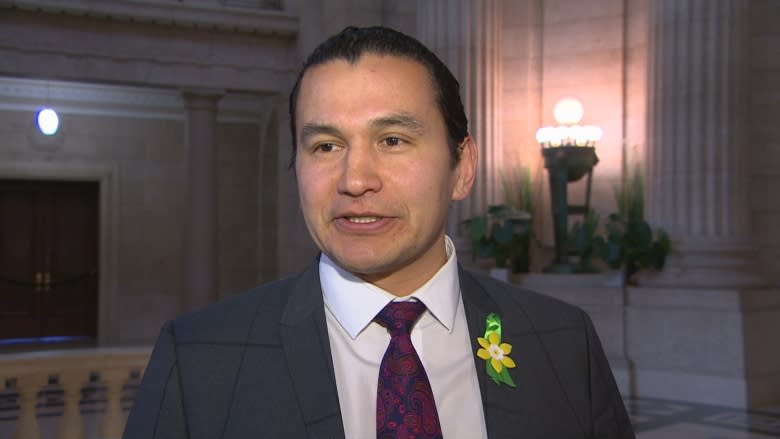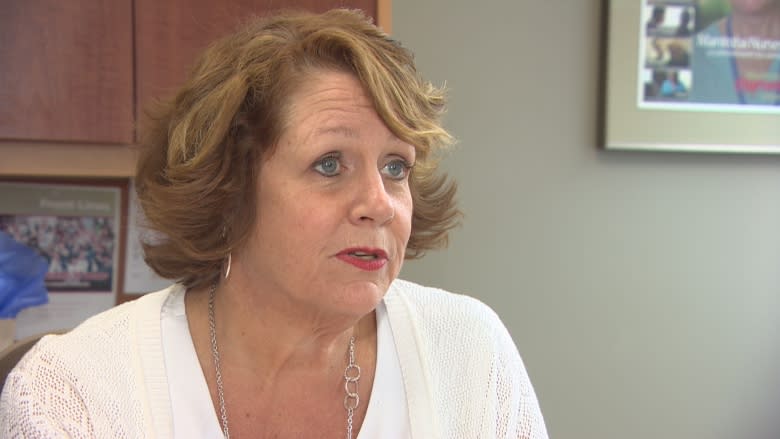Winnipeg ER wait times have dropped by 16% overall since last year, but rose in recent months
Wait times in Winnipeg emergency departments have dropped by 16 per cent overall in the past year, according to preliminary year-end numbers released by health officials Tuesday.
But since sweeping changes were implemented last October that include the closures of an emergency room and an urgent care centre, wait times have gone up every month — something officials say is due to the flu.
The median wait time at WRHA emergency rooms in October 2017 was 1.35 hours, according to data from the health authority. That's down from 1.85 hours during the same month a year earlier.
By March of this year, though, that median wait had increased to 2.02 hours.
"We have made some really good progress," said Krista Williams, chief health operations officer of acute care for the Winnipeg Regional Health Authority.
The median wait time in the city's ERs improved to 1.62 hours in 2017-18 from 1.93 hours in 2016-17, and inpatient length of stay improved by six per cent in the same period, Williams said.
But Opposition NDP Leader Wab Kinew said based on wait times from last October to now, it appears the health care overhaul is failing.
"Pallister's plan to close emergency rooms in the city is not working and they should back off the plan to close the other ERs," said Kinew.
The first phase of health care changes included the closure of the emergency room at Victoria General Hospital, which became an urgent care centre, and the closure of the urgent care centre at Misericordia Health Centre last October.
In the next phase, the emergency room at Seven Oaks Hospital is slated to be converted to an urgent care centre and Concordia Hospital's ER is slated to be closed completely.
Kinew called the governing Tories' changes to health care an "unprecedented attack on emergency rooms and health care in Manitoba."
Minister 'cautiously happy'
The health authority acknowledged emergency departments have seen a 10 per cent increase in the numbers of severely ill patients in recent months but said that's due to a busy flu season that's impacted recent wait times.
Health Minister Kelvin Goertzen said he's optimistic about the data released Tuesday.
"I'm sure that there's going to be ups and downs and bumps along the road as there is with any transformation, so [I'm] happy, but cautiously happy," Goertzen said.
He said he hopes the government will be able to provide a timeline in May for when the closure and conversion will happen at Seven Oaks and Concordia for Phase 2 of the health care overhaul.
"I know that there's a lot of uncertainty and so I get it, that it's important to provide that certainty as quickly as possible."
Goertzen said the province has committed to increasing capacity at St. Boniface Hospital and thinks the tender for the first part of conversion, which will see more treatment rooms and ER space added, has already been awarded.
Winnipeg's Grace Hospital will be expanded and open to patients around the end of May, he said.
'Unprecedented' OT: Nurses union
The Manitoba Nurses Union said blaming the recent increase in wait times on the flu is misleading and nurses working on the front lines continue to have serious concerns about ongoing health care changes and cuts.
"We have been hearing for months that patient volumes have increased beyond the WRHA's anticipated levels, emergency rooms are frequently crowded, and nurses are stretched thin," said union president Sandi Mowat in a statement.
"At St. Boniface nurses are still working unprecedented levels of mandatory overtime that began after the changes were implemented."
On Tuesday, if you needed to go to an ER in Winnipeg, the longest wait time just before 5 p.m. was 4.5 hours at Concordia and the shortest was 2.5 hours at the Grace.
Brenda Franz brought her sick husband to the Victoria Urgent Care Centre to get help Wednesday. She said he only had to wait three hours for care instead of the five hours the WRHA's website showed.
But he didn't see a doctor. She said a paramedic came over instead.
"I was quite surprised and [the paramedic] said he's helping assist with the staff, so I guess there's such a shortage that they're calling on paramedics when they're not busy," she said.
The WRHA said it had a paramedic student working with staff in the department and students are supervised, and are not independent in decision making regarding the provision of health services.
Spike in patients with severe illness
The WRHA said it continues to see an elevated level of patients with severe illness coming to emergency departments.
Since December, it's seen an eight per cent increase in ambulances and a nine per cent increase in patients needing to be admitted to hospital.
The health authority also said one or two patients experiencing the adverse effects of meth continue to come to emergency departments each day, and often stay longer than 12 hours without needing to be admitted. In 20 per cent of those visits, the patient stays longer than 24 hours.
It also said there are fewer seniors waiting in hospitals to get into personal care homes than any other year.
As of last Friday, there were 12 seniors waiting for a personal care home space.







